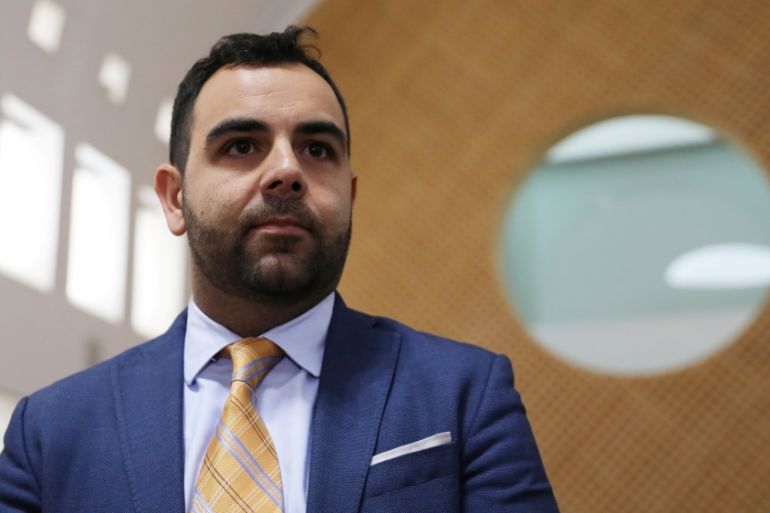Rights groups: Israeli decision to deport Shakir triggers fears
Top court used a 2017 law that enables the government to deny entry to those who call for a boycott of Israel.

The Israeli Supreme Court’s recent ruling in favour of a government decision to deport Omar Shakir, Israel and Palestine director of Human Rights Watch (HRW), could have widespread repercussions for human rights activists, lawyers and rights groups warned.
The country’s top court decided last week that Shakir, an American citizen, could be expelled because of his alleged support for boycotts of Israel, and ordered him to leave by November 25.
Keep reading
list of 4 itemsMasked Tunisian police arrest prominent lawyer for media comments
Gaza’s mass graves: Is the truth being uncovered?
Tunisia: The migration trap
“The Shakir case has triggered fears that human rights activists and other critics of the Israeli government could face a similar fate,” said Saleh Higazi, deputy director of Amnesty International for the Middle East and North Africa.
The Supreme Court used a 2017 law to uphold the decision to deport Shakir. This law amended the 1952 Entry into Israel Law and enables the Israeli Ministry of Interior to deny entry to foreigners who make a “public call for boycotting Israel” or “any area under its control”.
Israel has banned more than a dozen people from entering, including two US Congresswomen, under the same law.
Meaning of ‘boycott’
In its judgement, the Supreme Court distinguished between Shakir’s activism in his personal capacity and the activities of HRW, referring to his activism calling for boycotts against Israel before he was appointed Israel and Palestine director at HRW. Shakir had previously called for football’s governing body FIFA to stop holding matches in the occupied West Bank settlements.
The court stated the judgement is against Shakir as an individual and this did not mean Israel was “closing its gates to other representatives of HRW”.
Shakir told Al Jazeera his social media activities were related to his work since he was promoting HRW.
“The Supreme Court has essentially given Israel the veto power over who an international organisation should hire,” he said.
“Even if a person adheres to every policy of an organisation, that person can be deported on the basis of prior political activism. This also has significant implications for how other countries might engage international organisations.”
In its reaction to the judgement, HRW stated Shakir “never deviated” from its policy, which “does not advocate a boycott of Israel but urges businesses to fulfil their human rights responsibilities by ending ties with illegal West Bank settlements”.
HRW has, for example, called for Airbnb to remove its property listings in the West Bank.
According to Shakir’s lawyer, Michael Sfard, much turned on the court’s interpretation of the word “boycott”.
“Neither Human Rights Watch nor Shakir has called for a general cultural, economic or academic boycott of Israel,” he said, adding Shakir and HRW have been motivated by a desire to protect people against human rights abuses.
Freedom of association
Sfard argued before the court the Entry Law violates the right to freedom of association since activists opposing Israel’s human rights policies in Israel and Palestine are not given the opportunity to associate with like-minded critics from abroad. Sfard further stated the decision violates freedom of expression in Israel. The constitutionality of the Entry Law was not directly challenged by Sfard.
“When the Israeli government is deporting someone or denying someone a visa in a representative capacity, as was the case in the Shakir case, the court is not looking at the record of an individual person but at the record of an organisation.”
A consequence of this, according to Sfard, is that Israel has the power to veto the representative of an organisation such as HRW, which will in turn mean that international organisations will have to vet their employees.
“Israel can no longer tolerate anyone who is critical of Israel’s violations of international law,” said Tahseen Elayyan of human rights NGO Al-Haq.
Sfard said he was still considering whether to approach the Supreme Court for a review of its decision on Shakir.